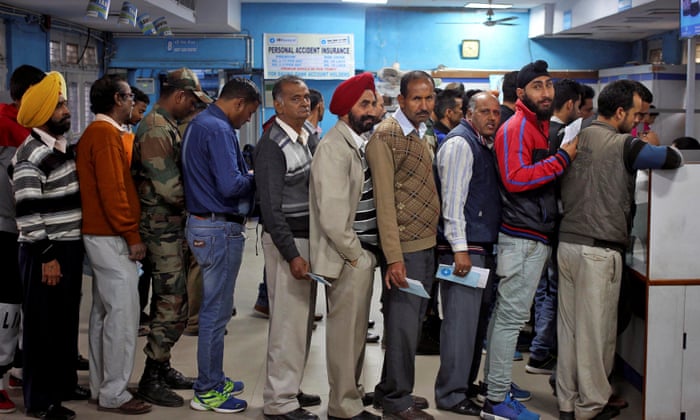The Reserve Bank of India (RBI) decided to withdraw Rs. 2000 banknotes from the Indian economy early this week.
The note was introduced seven years ago into the Indian currency denomination.
As soon as the news came out, it created a wave of worry for the people as it reminded the incident of demonetization in 2016. This was when the government under the leadership of Prime Minister Narendra Modi had delegitimized older Rs. 500 and Rs. 1,000 banknotes.

The decision was taken in order to get rid of black money and corruption in the economy.
But this time the central bank appears to be ready because it had already requested that the banks create particular services where individuals could deposit the Rs 2000 notes without any issues.
At the same time, unlike in 2016, it is believed that the decision to withdraw Rs. 2000 notes from the economy might have little or no impact on the common people because the note is valued at about 10.8 percent of the currency in circulation.
The reason behind withdrawing Rs. 2000 notes
In 2016, when all of the Rs. 500 and Rs. 1,000 banknotes in circulation lost their legal currency status, Rs. 2000 note was introduced primarily in order to meet the economy’s cash requirements.
Furthermore, the RBI stated in a press release that the goal of introducing Rs 2000 banknotes was achieved after banknotes in other denominations were made accessible in a sufficient amount. As a result, the printing of Rs 2000 banknotes stopped in 2018–19.
Also, as the central bank has always stressed reducing high-value notes in circulation, therefore they had stopped printing Rs. 2000 banknotes over the past four years.

While explaining the decision to stop printing this note, the RBI said that this denomination was anyway not used for transactions.
Moreover, according to a report submitted to Parliament by the finance ministry in December 2022, the value of the Rs 2000 denomination compared to all notes in circulation fell from 22.6% on March 31, 2020, to 13.8% by the end of March 31, 2022. This was another reason why Rs. 2000 notes were withdrawn.
In its annual report as well, the RBI noted a similar trend. In it, it said that at the end of March 2020, 274 million notes in the Rs 2000 denomination were in use which made up 2.4% of all currency notes in use. By March 2021, there were 245 million banknotes in circulation, or 2% of all banknotes in use; and by the end of the previous fiscal year, there were only 214 million, or 1.6 %.
Will the decision affect banks?
By submitting or exchanging Rs 2,000 notes for smaller denominations by September 30 in accordance with the central bank’s instructions, bank deposits will increase.

The further injection of cash will probably increase the bank’s lending ability, which is currently slow, as it is still considered legal tender.
According to Karthik Srinivasan, group head of financial sector ratings at rating agency ICRA Ltd., this decision would lessen the pressure on deposit rate hikes and would also improve the cash situation of the banks.
Will India’s economy slip from the right path?
RBI Governor, Shaktikantha Das, said while Rs 2000 currency notes make up for barely 10.8% of the total amount of money in circulation, it is believed that the withdrawal’s effect on the economy will be “very very marginal”.
He also claimed that the main purpose of the introduction of Rs 2000 notes was to replace the money that had been lost as a result of the 2016 demonetization.

However, according to some experts, minor businesses and industries that rely on cash, including agriculture and construction, may experience difficulties in the near future.
In the words of Yuvika Singhal, an economist with QuantEco Research, there could be some surge in buying at random such as gold if people holding these notes chose to spend them rather than deposit them in bank accounts.
Proofread & Published By Naveenika Chauhan



